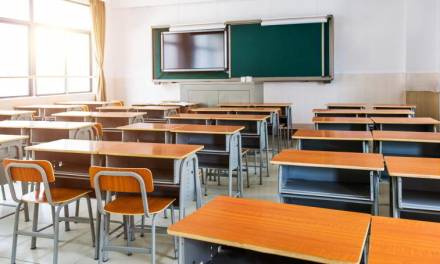There are 400,000 pupils absent from the classroom due to issues associated with the pandemic and lockdown.
The Children’s Commissioner said that pupils sent home due to a Covid-19 was relatively small but many children with special needs or emotional problems had yet to return.
The figures continue a worrying trend set by schools in Scotland, where 12% of pupils were absent on one day last month.
What can be done to increase the number of children receiving an education? This blog post explains.
Why are numbers so low?
A large concern of headteachers is a lack of testing for staff which senior leaders have said could “grind schools to a halt“.
Children’s commissioner, Anne Longfield, said getting tests to schools quickly “was a test the Government could not afford to fail”.
However the lack of control over the virus is creating anxieties for students and their parents.
We know that 10% of children are away from the classroom, not necessarily with Coronavirus.
We think 5% of children are out of the classroom on average on a regular day – outside of the pandemic.
But there will be children with SEND (Special Educational Needs and Disabilities), and there will be children, often troubled teens, who haven’t been in school over this period of time who will need extra help to get back into school.
We also know there are a lot of the children that aren’t in school don’t have symptoms themselves, but are in year groups with children who might.
So there needs to be extra clarity from the government in terms of who does need to not be in school if there are symptoms.
Also teachers need that help from public health officials locally, to be able to make those really difficult decisions, and really difficult risk assessments of how they can keep their schools going.
A lot of problems come because teachers are showing symptoms and therefore need to be tested and this affects the schools, especially small ones, because there comes a point when you can’t run a school because there aren’t enough staff.
What are the guidelines for attendance during the pandemic?
The Government guidance on attendance is as followed:
Schools must take the attendance register at the start of the first session of each school day and once during the second session. On each occasion they must record whether every pupil is:
- Present
- Attending an approved educational activity
- Absent
- Unable to attend due to exceptional circumstances
- Not attending in circumstances relating to coronavirus (Covid-19)
This code is used to recorded sessions where the pupil’s travel to or presence at school would conflict with:
- Guidance relating to the incidence or transmission of coronavirus (Covid-19) from Public Health England or the Department of Health and Social Care or
- Any legislation (or instruments such as statutory directions) relating to the incidence or transmission of coronavirus (Covid-19)
Fines being issued due to non-attendance
There are various protocols in place to ensure your children receive an education:
- A Parenting Order
- an Education Supervision Order
- a School Attendance Order
- a fine (sometimes known as a ‘penalty notice’)
Local councils can hand out fines of £60 to parents which can rise to £120 if not paid within 21 days.
If you do not pay the fine after 28 days you may be prosecuted for your child’s absence from school.
This could mean a fine of £2,500, a community order or a jail sentence up to three months.
This morning, Health Secretary Matt Hancock told ITV that there are no plans to stop children from going to school. He said that families who ignore the Government’s rules on attendance will be hit with a penalty unless “good reason” is provided.
Ofsted guidance on attendance and should attendance be forced?
Ofsted’s Behaviour and Attitudes judgement has a strong focus on attendance. It is the assessment which looks at attitudes of the school and students, with focus on:
- A calm and orderly environment enabling pupils to learn
- Clear routines and expectations
- Strong focus on attendance and punctuality so that disruption is minimised
- Clear and effective behaviour and attendance policies which clearly define consequences that are applied consistently and fairly by all staff
- Pupil motivation and positive attitudes to learning
- A positive, respectful school culture in which staff know and care about pupils
- An environment where pupils feel safe, in which bullying and discrimination are not accepted and in which they are dealt with with quickly, consistently and effectively whenever they occur
Ofsted guides states that inspectors will:
…evaluate the impact of schools’ high expectation, the consistent, fair implementation of policies, and their impact on the demonstrable improvement of the attendance and behaviour of these pupils.
Read more about Ofsted’s expectations here.
The Government has advised all students to return to school:
Going back to school is important for education and wellbeing. There are many benefits to education and the risks are low. Evidence suggests that the risk for children and young people is much less than we thought to begin with.
Ultimately, the decision to fine families lays with the headteachers, it has created some tension with local councils.
Geoff Barton, leader of the ASCL headteachers union said:
We would caution the Government against an expectation that penalties for non-attendance should be imposed as soon as school resumes in September.
It would be a good idea to have a period of grace to allow confidence to build among parents, rather than attempting to force the issue from the word go.
We are sure that most parents will want their child to attend, but there will be some who are nervous for a variety of reasons and it does not seem right to hit them with fines.
There will be many frightened and anxious parents out there, and this is very much a case of building confidence that it is safe to return, rather than forcing the issue through the use of fines.
One area in which there is a divide between the local authority and schools is a dispute between school in Crawley and West Sussex council.
The Head of St Wilfred’s Michael Ferry was interviewed on breakfast television where he stated he would not fine a parent. This led to debate around what the right decision would be.
A spokesman from West Sussex County Council said:
We welcome the plan for all children to return to the classroom in September after, what has been for many, a length absence.
We recognise that some children may be anxious about returning to school and will work closely with our schools to help them prepare children and build the confidence of parents and carers in the plans for a safe and managed return.
We will continue to work with schools to engage with and support parents and carers in getting their children back into school before considering issuing penalties for poor attendance. Issuing fines for non-attendance is always a last resort.
Michael Ferry said in response:
The guidance allows headteachers as far as they can to make local decisions to meet the needs of their school communities. If one of those decisions happens to be that we are not going to fine people for something that isn’t their fault then I would expect the local authority to support the headteachers in doing so.
If only 10% turn up then I would say I have failed because I have not got across the message about what measures we are taking to protect our students.
What do you think? Should parents be fined for pupils being absent from school? Let us know in the comments below.
How EDClass can support pupils absent
EDClass can help support learners who are absent from the classroom.
The platform has a proven record of engaging pupils in education and supporting remote learning during the pandemic. The sophisticated tracking software means you can identify students on the system which can be used to contribute to an attendance mark being awarded.
More than 11,000+ lessons are available in subjects including English, maths and science.
The virtual classroom provides access to teachers, live and recorded lessons, learning materials, assessments, quizzes, tasks, games and more to keep students engaged. A number of features are available for students with special educational needs too.
Safeguarding is an essential of the platform with alert mechanisms, questionnaires and eyes-on learning built in to identify any issues. All EDClass staff are enhanced DBS checked and will notify the schools if there are any issues.
For more information call 01909 568 338.









